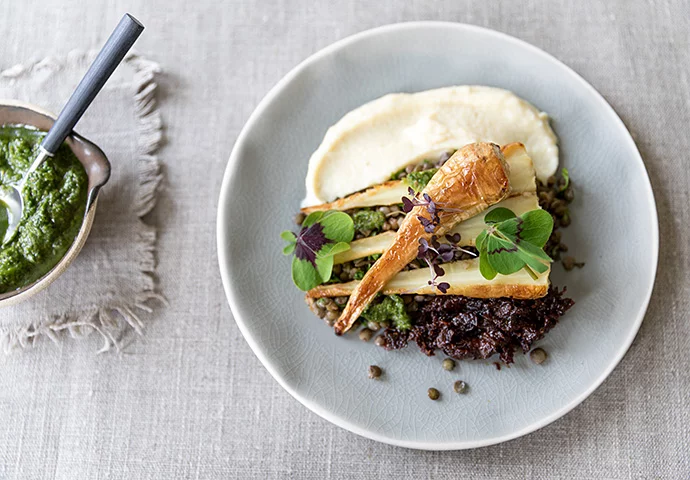Historically, salt has been used to preserve food when fresh produce was not available. In the present day, we do not strictly need salt for preservation, and thus we have developed a salty preference. Salt enhances the flavour of foods, and many people consume far too much of it.

Salt contains sodium which is an essential nutrient involved in many key biological processes that occur in the body. For example, sodium is necessary for nerve and muscle function and the regulation of fluid in our cells. However, we only require sodium in small amounts (adults are recommended to have 2.4g or less of sodium per day which is roughly a teaspoon of salt), consequently, it is very easy to exceed the recommended amount.
The Food Standards Agency found that most people in the UK are eating too much salt. Having too much salt in your diet can lead to high blood pressure which has been found to increase the risk of developing heart disease and stroke by three times. Shockingly, high blood pressure has been linked to over 170,000 deaths per year in England. Often high blood pressure is symptomless; therefore, it is important to be aware of the quantity of salt we are consuming. It has been reported that the prevalence of high blood pressure increases with age amongst the adult population in the UK, further emphasising the importance of monitoring our salt consumption.
Interestingly, it has been reported that salt levels in processed foods have been reduced by 40-50% and consequently more than 11 million kilograms of salt has been removed. Regardless of this, the average salt consumption in the UK remains too high. Therefore, suggesting that it is down to the individual to reduce their salt consumption. Below are some useful tips on how to reduce your salt consumption…
Ways in which you can reduce your salt intake:
- When cooking, measure your salt rather than sprinkling it on
- Make your own sauces rather than buying pre-made
- Choose unsalted foods (i.e. unsalted butter) or reduced-salt foods
- Look for the green traffic lights on foods (this indicates that the salt content is low)
- Taste your food before adding salt automatically, it might not need it
- Choose healthier snacks, pre-made processed foods are generally higher in salt
- Roasting foods can bring out their flavour as well as using black pepper and fresh herbs and spices
- If you regularly take dissolvable supplements or painkillers switch to non-dissolvable ones as these have up to 1g of salt per tablet.
- Eat foods that are naturally high in salt (i.e. bacon) less often and in small amounts
